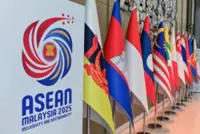
PETALING JAYA: The United Kingdom has expressed a commitment towards further cooperation with Malaysia to curb the issue of human trafficking and forced labour, says Human Resources Minister V Sivakumar (pic).
He said that Malaysia has given its word that blockchain technology would be used to ensure that the intake of foreign workers were more transparent and was free from elements of forced labour.
Save 30% for ads-free and full access now!









































